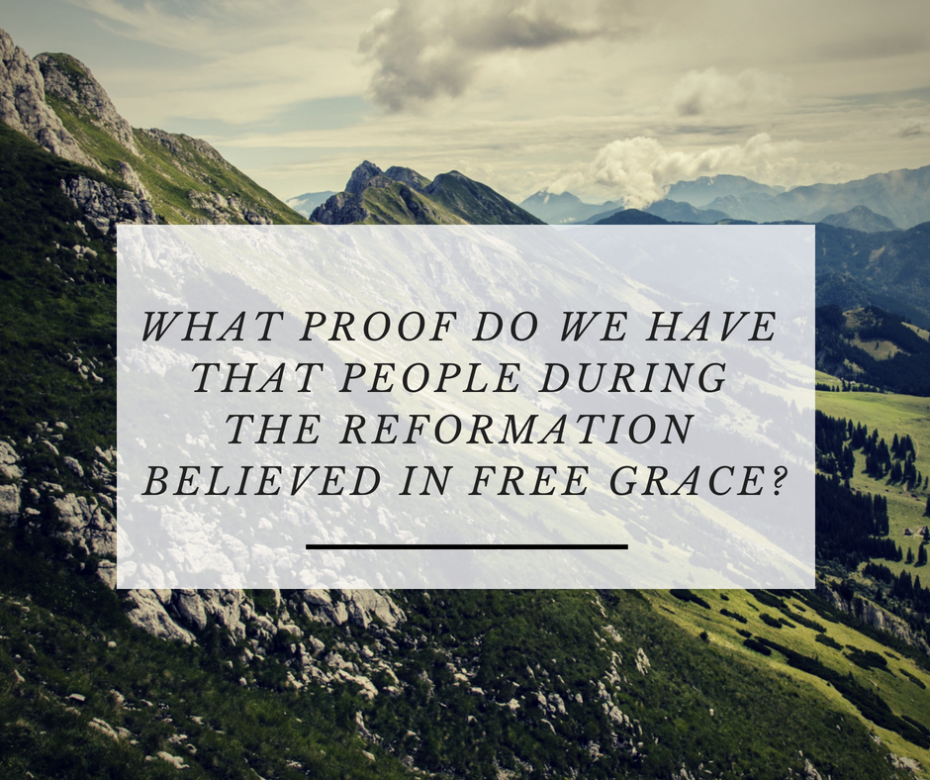Reformation Commentary on Scripture, New Testament XIII: Hebrews, James. Edited by Ronald K. Rittgers. Downers Grove, IL: IVP Academic, 2017. 341 pp. Cloth, $49.99.
Free Grace proponents have tried to show that both John Calvin and Martin Luther held to Free Grace Theology. While it is certainly true that we can find quotes from both Calvin and Luther that are consistent with Free Grace Theology, it is also true that we can find an equal or greater number of quotes from them which are consistent with Lordship Salvation. I’ve long felt that it was pointless trying to prove that Calvin or Luther agreed with us. I appreciate and sometimes use good quotes from them. But I do not suggest that they were in agreement with us.
Part of the problem in studying Calvin and Luther is that their views changed over time. I think, though I cannot prove since I have not done the detailed research needed, that at the beginning both men were fairly clear on Free Grace Theology. But as they responded to criticism, they seemed to have drifted in the direction of what we now call Lordship Salvation.
I recently reviewed the above commentary for our journal. Below is part of the review. In that review you will see that I give a quote from a mid-sixteenth century Anabaptist, Leupold Scharnschlager (not related to Arnold), who clearly indicates that he is aware of some who promote what we now call Free Grace Theology.
Here, then, is part of my review:
This commentary series gives the reader the views of leading Reformed scholars “from the late 1400s to the mid-seventeenth century” (p. xxii). The reader should not expect to be overwhelmed with quotes from Luther and Calvin. While they are quoted, others appear more often including Heinrich Bullinger, Zwingli, Oecolampadius, Osiander, Spangenberg, Bugenhagen, Dirk Philips, Erasmus, Melanchthon, and others.
Under the heading “Excommunicate False Believers,” Dirk Philips is quoted as saying, “He who wishes to reach life eternal with Christ must love him with true faith, cleave to him, suffer and die with him, i.e., to be with him one spirit, and to be one body with his church, persevering therein perpetually” (p. 82). This quote, though more extreme than modern Reformed theologians, is similar to some of the writings of Reformed Lordship Salvation advocates today. It shows that Lordship Salvation is also present in Anabaptist theology.
Looking at Jas 2:14-26, we find a chapter dealing with that section. One major section in that chapter concerns Jas 2:14-19. Balthasar Hubmaier, another Anabaptist, says, “Mere faith alone is not sufficient for salvation…Yea, I confess on the strength of this article that mere faith does not deserve to be called faith, for a true faith can never exist without deeds of love” (p. 233).
Similarly Leupold Scharnschlager (Anabaptist Radical elder who died in 1563) says, “No one can claim that faith, which comes from the preaching of God’s word, is merely a historical or dead faith, without effect or fruit. No doubt that is what people held at the time of James…Even today some understand Christ and Paul as ascribing righteousness and life to faith alone, as if a faith without deeds and fruit is enough for salvation. For how can it be a barren, that is, a dead faith, when life—and much more—comes forth from it?” (p. 233, emphasis added). Notice the words I’ve emphasized. While we have no existing documents to back up what he says, his testimony is powerful. I’ve often said that there must have been people in every generation who proclaimed the faith-alone message. If they wrote, their writings were destroyed. But it is encouraging to see evidence of them.
Even though it takes some work to find helpful quotes, I recommend this commentary for the wealth of useful information in it. It is worth the time, I believe, to mine it. Free Grace Pastors should be able to find many helpful quotes in it, though, of course, most of the quotes will illustrate where modern Lordship Salvation came from. In addition, the biographical sketches are worth the price of the book.


